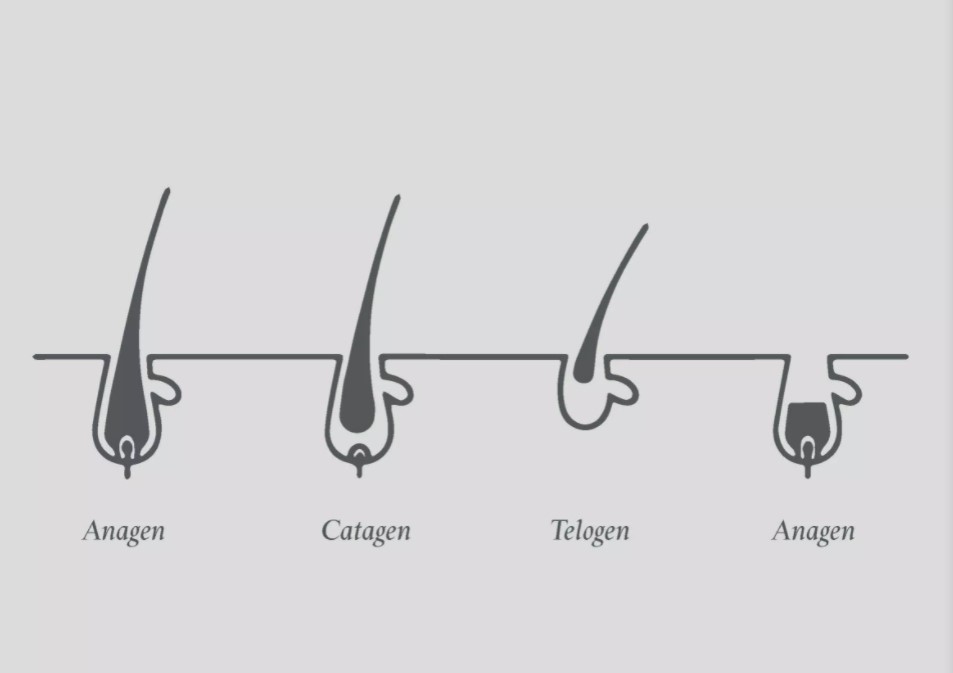Telogen effluvium is a form of diffuse hair loss. You will probably notice more hairs coming out when you brush and style, and perhaps on your pillow and clothes. You may also notice that your overall hair volume feels lighter and less dense. You may also notice that many of your hairs are not reaching their maximum length, and you have difficulty growing your hair as long as you used to.
Telogen effluvium can be extremely distressing when you are experiencing it, but rest assured that this type of hair loss is temporary.
What Causes Telogen Effluvium?
Telogen effluvium occurs when the anagen (growth) phase of the hair growth cycle is cut short by an internal disturbance in your body. This causes many more hairs than usual to move from their anagen phase into their telogen (shedding) phase, resulting in excessive daily hair fall.
On average, it is normal to lose up to 100 hairs a day, provided they are growing back. However, telogen effluvium can result in as many as 300 hairs being shed in a 24 hour period.
Telogen effluvium can be either acute (short-term) or chronic (recurring / continuous) depending on the cause and the severity of the disturbance to your system. Due to the nature of the hair growth cycle, hair loss usually takes place 6 – 12 weeks after the event, illness or medication that triggered it, so you may not always connect the two. If you notice excessive hair shedding, look back two or three months for possible causes.
Telogen effluvium can be extremely distressing when you are experiencing it, but rest assured that this type of hair loss is temporary.

Potential triggers of telogen effluvium include [but are not limited to]:
- Crash dieting
- Medications
- Hormonal contraceptives (including the pill)
- Stress
- A high fever
- Stomach flu
- Thyroid conditions
- Iron deficiency
- Ferritin (stored iron) deficiency
- Protein deficiency
- Shock or emotional trauma
- Rapid weight loss
- Eating disorders
- Pregnancy
How do You Treat Telogen Effluvium?
Telogen effluvium is a temporary type of hair loss. Rest assured that your hair will almost certainly grow back once the underlying issue has been resolved. Feel free to continue shampooing, conditioning and styling your hair as normal. These things will not cause or worsen shedding.
Your treatment will depend on what exactly is causing the telogen effluvium.
At Philip Kingsley, our Trichologists will look into all aspects of your medical history and lifestyle to help discover the causes. We recommend blood tests to give us as detailed a picture of your health and nutrition as possible.
Telogen effluvium resulting from trauma or short-term illness, such as a high fever or stomach upset, will usually resolve itself in around three months.
However, chronic telogen effluvium can last as long as the cause remains unresolved. Telogen effluvium due to nutritional deficiencies can often be simply treated with changes to your diet, and nutritional supplements such as our specially formulated Density Healthy Hair Complex and Density Amino Acid Booster.
Other causes, such as thyroid conditions, need to be treated with appropriate medications and, potentially, lifestyle changes.










